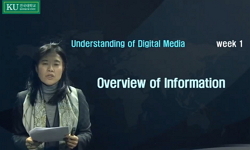Background and Objectives: The primary objective of this study is to investigate the necessity of questioning virtual reality systems in the motion sickness susceptibility questionnaire (MSSQ)-short form. The secondary objective of this study is to de...
http://chineseinput.net/에서 pinyin(병음)방식으로 중국어를 변환할 수 있습니다.
변환된 중국어를 복사하여 사용하시면 됩니다.
- 中文 을 입력하시려면 zhongwen을 입력하시고 space를누르시면됩니다.
- 北京 을 입력하시려면 beijing을 입력하시고 space를 누르시면 됩니다.


Expansion to the Motion Sickness Susceptibility Questionnaire-Short Form: A Cross-Sectional Study
한글로보기https://www.riss.kr/link?id=A108517025
-
저자
Ugur Emel (Mehmet Ali Aydinlar University Vocational School of Health Sciences Audiometry, Acibadem Altunizade Hospital,Istanbul, Turkey) ; Konukseven Bahriye Ozlem (Department of Audiology, Istanbul Aydin University Institute of Health Sciences, Istanbul, Turkey) ; Topdag Murat (Department of Otorhinolaryngology, Acibadem Altunizade Hospital, Istanbul, Turkey) ; Cakmakci Mustafa Engin (Mehmet Ali Aydinlar University Vocational School of Health Sciences Audiometry, Acibadem Bakirkoy Hospital, Istanbul, Turkey) ; Topdag Deniz Ozlem (Department of Otorhinolaryngology, Acibadem Altunizade Hospital, Istanbul, Turkey)
- 발행기관
- 학술지명
- 권호사항
-
발행연도
2022
-
작성언어
English
- 주제어
-
등재정보
KCI등재,SCOPUS,ESCI
-
자료형태
학술저널
-
수록면
76-82(7쪽)
- DOI식별코드
- 제공처
-
0
상세조회 -
0
다운로드
부가정보
다국어 초록 (Multilingual Abstract)
Background and Objectives: The primary objective of this study is to investigate the necessity of questioning virtual reality systems in the motion sickness susceptibility questionnaire (MSSQ)-short form. The secondary objective of this study is to determine the validity and reliability of the Turkish version of the MSSQ-short form, with proven validity and reliability.Subjects and Methods: In the questionnaire form, for which expert opinion was obtained to maintain linguistic equivalence, the virtual reality items were added to the questionnaire. The questionnaire was then administered to 297 individuals. The results were statistically analyzed with and without these virtual reality items for validity and reliability.Results: After the addition of the virtual reality items, the reliability of the questionnaire was found to be quite high (Cronbach’s alpha r=0.912). The norm values between the original MSSQ-short form (12.9±9.9) and the Turkish MSSQ-short form (13.8±12.9) were found to be consistent.Conclusions: Motion sickness symptoms can occur not only during movement, but also with indirect stimulus. Our findings suggest that adding virtual reality items to the original form is important in long term practical applications. Our results show that the Turkish version of the original questionnaire is quite reliable. Submission of the MSSQ-short form in Turkish will be useful for documentation and will also encourage further research in this area.
참고문헌 (Reference)
1 Kim HK, "Virtual reality sickness questionnaire(VRSQ) : motion sickness measurement index in a virtual reality environment" 69 : 66-73, 2018
2 Van Ombergen A, "The effect of optokinetic stimulation on perceptual and postural symptoms in visual vestibular mismatch patients" 11 : e0154528-, 2016
3 Cheung B, "Survival at sea for mariners, aviators and search and rescue personnel (RTO-AG-HFM-152)" North Atlantic Treaty Organisation, Research and Technology Organisation 1-24, 2008
4 Kennedy RS, "Simulator sickness questionnaire : an enhanced method for quantifying simulator sickness" 3 : 203-220, 1993
5 Golding JF, "Predicting individual differences in motion sickness susceptibility by questionnaire" 41 : 237-248, 2006
6 Paillard AC, "Motion sickness susceptibility in healthy subjects and vestibular patients : effects of gender, age and trait-anxiety" 23 : 203-209, 2013
7 Golding JF, "Motion sickness susceptibility fluctuates through the menstrual cycle" 76 : 970-973, 2005
8 Golding JF, "Motion sickness susceptibility" 129 : 67-76, 2006
9 Mallinson AI, "Motion sickness and vestibular hypersensitivity" 31 : 381-385, 2002
10 Lackner JR, "Motion sickness : more than nausea and vomiting" 232 : 2493-2510, 2014
1 Kim HK, "Virtual reality sickness questionnaire(VRSQ) : motion sickness measurement index in a virtual reality environment" 69 : 66-73, 2018
2 Van Ombergen A, "The effect of optokinetic stimulation on perceptual and postural symptoms in visual vestibular mismatch patients" 11 : e0154528-, 2016
3 Cheung B, "Survival at sea for mariners, aviators and search and rescue personnel (RTO-AG-HFM-152)" North Atlantic Treaty Organisation, Research and Technology Organisation 1-24, 2008
4 Kennedy RS, "Simulator sickness questionnaire : an enhanced method for quantifying simulator sickness" 3 : 203-220, 1993
5 Golding JF, "Predicting individual differences in motion sickness susceptibility by questionnaire" 41 : 237-248, 2006
6 Paillard AC, "Motion sickness susceptibility in healthy subjects and vestibular patients : effects of gender, age and trait-anxiety" 23 : 203-209, 2013
7 Golding JF, "Motion sickness susceptibility fluctuates through the menstrual cycle" 76 : 970-973, 2005
8 Golding JF, "Motion sickness susceptibility" 129 : 67-76, 2006
9 Mallinson AI, "Motion sickness and vestibular hypersensitivity" 31 : 381-385, 2002
10 Lackner JR, "Motion sickness : more than nausea and vomiting" 232 : 2493-2510, 2014
11 Uneri A, "Migraine vestibulopathy in three families with idiopathic scoliosis : a case series" 2 : 9367-, 2009
12 Golding JF, "Meniere's, migraine, and motion sickness" 137 : 495-502, 2017
13 Catanzariti JF, "Evaluation of motion sickness susceptibility by motion sickness susceptibility questionnaire in adolescents with idiopathic scoliosis : a case-control study" 25 : 438-443, 2016
14 Oman CM, "Brainstem processing of vestibular sensory exafference : implications for motion sickness etiology" 232 : 2483-2492, 2014
15 Huppert D, "A historical view of motion sicknessa plague at sea and on land, also with military impact" 8 : 114-, 2017
동일학술지(권/호) 다른 논문
-
- 대한청각학회
- Song Hyunwook
- 2022
- KCI등재,SCOPUS,ESCI
-
- 대한청각학회
- Tinazli Remzi
- 2022
- KCI등재,SCOPUS,ESCI
-
- 대한청각학회
- Plioutas John
- 2022
- KCI등재,SCOPUS,ESCI
-
Migraine-Associated Otalgia: An Underappreciated Entity
- 대한청각학회
- Sussman Sarah
- 2022
- KCI등재,SCOPUS,ESCI




 KCI
KCI






